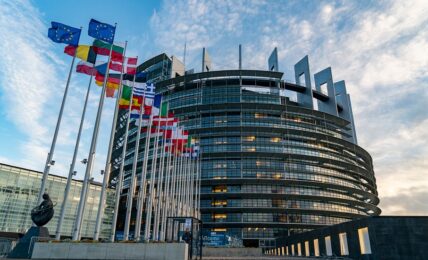Integrated power systems company for manufacturing aero, marine, and industrial gas turbines Rolls-Royce announced a series of new targets to achieve net zero by 2050 including the development of new technologies for decarbonizing emissions in its own operations by 2030. Rolls-Royce’s new targets are in line with UN Race to Zero Commitment.
The company operates in several of the most carbon intensive and yet hard to abate sectors of the economy. According to the company, its technology pathway can have a significant impact across multiple systems for the creation of more sustainable power.
In the near-term, the company has established a series of 2023 targets, including:
To have its in-production commercial aero engine types compatible with 100% Sustainable Aviation Fuels (SAF)To show compatibility with SAFs for its in-production Defense aero-enginesTo have certified new generation of Series 2000 and Series 4000 engines with sustainable fuelsTo have integrated 2MW of hydrogen fuel cells into operational microgrid demonstrations to help expand the use of renewable energy across remote communities
Rolls-Royce stated that its 2023 targets are now part of its executive remuneration policy.
Longer terms, the company aims to bend the current emissions curve to reach net zero by 2050, targeting the elimination of emissions from its own scope 1 and 2 operations. Its production site in Bristol, UK will be the first facility to achieve net zero carbon status in 2022. Through the enhancing the efficiency of its engine portfolio, Rolls-Royce is hoping to improve the economics of sustainable fuels.
For the new net zero emissions goal, the company is also planning on introducing low or zero emission products, including fuel cells, microgrids, hybrid-electric, and fully electric technologies. To accelerate the take-up of Sustainable Aviation Fuels (SAF), Rolls-Royce will make all its civil-aero engines compatible with 100% SAF, through testing by 2023, aligning with the UN Race to Zero goal of 10% of all fuel used in aviation being SAF by 2030.
Warren East, CEO at Rolls-Royce, said:
“At Rolls-Royce, we believe in the positive, transforming potential of technology. We pioneer power that is central to the successful functioning of the modern world. To combat the climate crisis, that power must be made compatible with net zero carbon emissions. This is a societal imperative as well as one of the greatest commercial and technological opportunities of our time.”
Nigel Topping, UN High Level Champion for COP26, added:
“Winning the race to a zero-emission economy by 2050 at the latest requires radical collaboration and technology breakthroughs across energy, transport and the built environment – critical parts of the economy that are also among the hardest to decarbonise. By organising its industrial technology capabilities to deliver the system change society needs, Rolls-Royce is putting itself at the forefront of the defining economic opportunity of our time; one that customers want to buy, investors want to back, and the brightest talent want to apply their skills to.”
The post Rolls-Royce Tackles Hard to Abate Emissions With Net Zero Portfolio appeared first on ESG Today.


